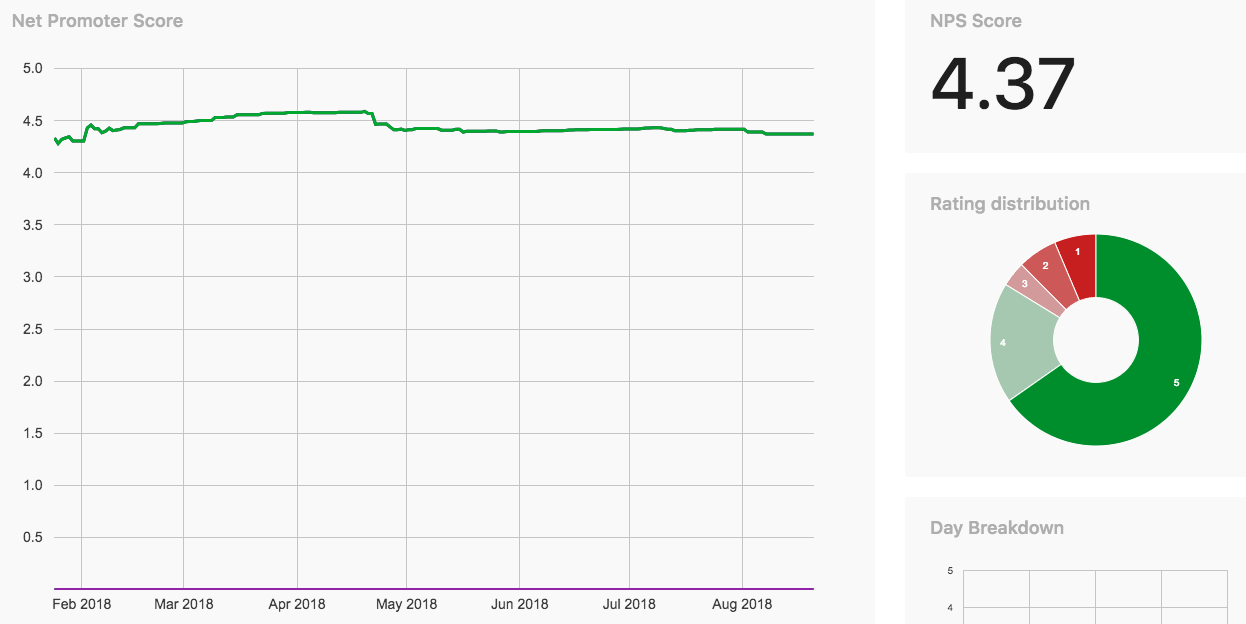What questions should I include in my customer feedback survey?

Feedback is important for businesses to get a sense of how they're performing. The feedback you receive, whether positive or negative, becomes instrumental in improving your offering in the eyes of the people that matter most: the customer.
Whereas feedback is very important and can shape the future health and success of a business, getting feedback is a notoriously challenging affair. If left to the customer you will only hear of the extremes - the very happy or the very unhappy. Or customers may voice their frustration with their feet, moving to a competitor suddenly and silently, without any insights that you can use to make sure it doesn't happen again.
The statistics behind how people's feelings can impact your business are striking. Customers, on average, share a good experience with an average of 4 people. A bad experience can be shared with double that amount - as many as 9 people.
Even though a negative opinion may undo the work of several happy customers, there are a number of things you can do to catch unhappy customers before they go online and rant about their negative experience.
Where do I start?
Gathering customer feedback is a very broad brush notion. Like deciding you want to 'grow awareness' or 'increase sales', gathering feedback is only the first step in defining what your business is trying to achieve and how you achieve it.
The best place to start is to define a SMART goal for customer feedback or (even better) customer satisfaction. Setting a goal for improving customer satisfaction is a good start, but how will you know whether you've improved satisfaction if you don't know what the current levels of customer happiness look like?
Your SMART goal may look something like this:
We want to have three quarters of our customers identify as satisfied* within 18 months. We also want to double the amount of online reviews we have on Google by January 2019.
The next step is to have some form of measurement in place to track this. The tracking of Google reviews is easy - you simply have to look online and see if this has increased to the level you're happy with. Measuring customer satisfaction may be harder, but a great place to start is to ask them!
What methods can I use for gathering customer feedback?
There are a whole bunch of tools readily available for you to send questions to a customer. From the humble piece of paper dropped into a box in reception, to automated emails directing recipients to Survey Monkey or Ask Nicely.
When sending out or asking for feedback, remember that you're basically using the happiness credits a customer has for you to get their feedback. Because you've created a good experience, a customer is willing to reciprocate with a little effort on their side. Asking for too much may result in them becoming unhappy in their relationship with you!
Therefore a balance needs to be struck. What are the essential questions you need to ask and how can you minimise the impact (in terms of time and sensitivity) these questions have on this newly acquired fan of your brand?
Below are some standard mistakes people make in feedback surveys.
- Too many questions - would you rather answer 5 small questions or 20 long questions?
- Too much input required from the respondent - are you making them do all the thinking or could you give them a tick box instead?
- Making too many fields mandatory in online forms.
- Not managing expectations - if your online forms have page after page with no indication of when the end will come can turn people off!
- No thank you - offering a reward or a thank you for filling in the feedback survey tops up the happiness credits.
What questions should I ask in my customer feedback survey?
The short answer to this is 'the important ones'. If you have defined what you're trying to achieve with your feedback as part of your goal, then the questions should be easier to define. The risk is trying to ask too many in one feedback survey.
If we go back to our original SMART goal, all we want is to measure customer satisfaction. Therefore the only real question we need to ask is 'How satisfied were you with your purchase/service?'.
If you want to offer a freehand box to allow the respondent to give additional comments or feedback then you should. But you should resist the urge to have the customer answer all of your business's problems in the one survey!
Responses may need to be managed, so you should require the respondent's first name and an email address. After all, if they are really unhappy would you like the opportunity to put it right?
Think back to the statistic shared earlier. If 9 people are told of a good experience and 16 are told of a bad one, would it be valuable to also learn whether the respondent is likely to promote your business or speak ill of it (known as detractors)? Discovering the balance of promoters to detractors is known as an Net Promoter Score.
What's a Net Promoter Score or NPS?
An NPS score minuses the detractors from the promoters to find out whether people are more likely to promote your brand, or persuade others to steer clear.

This score can be easily calculated but gives a great insight into whether customers are happy with your service and will encourage future sales, or will discourage future sales.
So now you have a bit more information on how you can construct an effective customer satisfaction survey, get going setting your goals. If you're wondering how you can use customer feedback to guide your marketing strategy, consider booking a marketing strategy session with us.
Download your free guide to Smarter SEO
Good SEO can mean the difference between your business being found, or you being lost in the growing mass of online resources. This guide is designed to help you rise above your competition.
Download now



